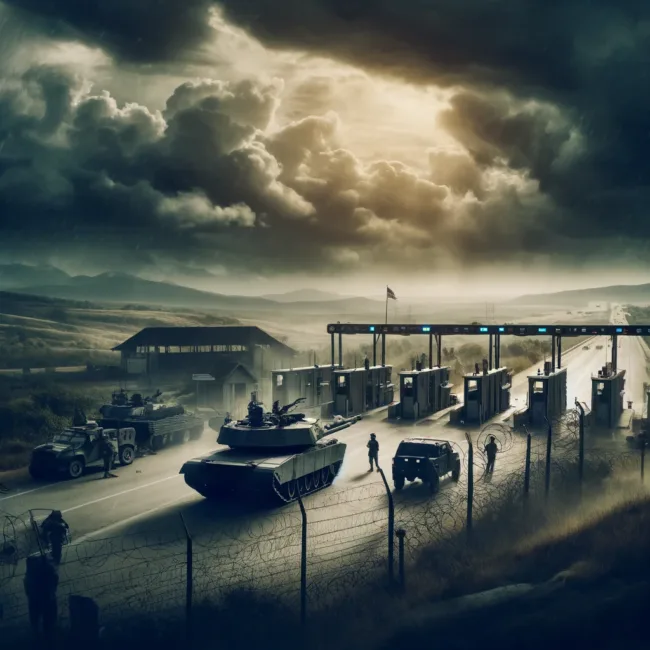Israeli Forces launch ground incursion at Rafah, Gaza’s humanitarian lifeline cut off
In a significant escalation of the ongoing conflict in Gaza, Israeli tanks entered Rafah, marking the first ground incursion into the southern city. The Rafah border crossing, critical for humanitarian aid into Gaza, is now controlled by Israel, sparking widespread concern over the worsening humanitarian crisis. The United Nations has reported that access to the crossing has been denied by Israeli authorities.
Tanks Enter Rafah, Humanitarian Access Denied
The operation began early on Tuesday, May 7, as tanks pushed into Rafah, the primary entry point for humanitarian aid into the Gaza Strip. Wael Abu Omar, spokesman for the Palestinian Crossings Authority, declared the crossing non-operational. “The whole western area of Rafah has become a theatre of operations since yesterday. The bombardment has not stopped,” Abu Omar reported. He also noted that the flow of aid and travel into Gaza via Rafah has “stopped completely” due to the ongoing military action.

Israeli tanks have taken control of the Rafah border crossing in Gaza, cutting off the main humanitarian aid route amid escalating conflict.
Impact on Civilians and Humanitarian Situation
The ground invasion follows a warning from Israel to evacuate the area, which is home to over a million Palestinians who sought refuge from previous bombardments. The military action is described as having “a very limited scope against very specific targets,” yet the impact on civilians is catastrophic. Residents of Rafah, now living in tented camps and makeshift shelters, face dire conditions with no safe place to retreat.
Casualties and Response from International Community
The offensive has also led to heavy casualties. Reports from local hospitals indicate numerous fatalities and injuries resulting from the continued bombardment. The international community, including the United Nations, has expressed deep concern over the situation, emphasizing the critical shortage of essential supplies like fuel due to the closure of the Rafah crossing.
Israeli Military Objectives and Restrictions
The Israeli military stated that the operation aims to target militants and dismantle infrastructure utilized by Hamas, which governs Gaza. However, the UN’s humanitarian agency, OCHA, highlighted the severe restrictions on humanitarian operations. “We currently do not have any physical presence at the Rafah crossing as our access has been denied,” said Jens Laerke, a spokesman for OCHA.
The seizure of the Rafah crossing by Israeli forces amidst ceasefire talks suggests a strategic move to control key infrastructure and potentially influence the negotiations. The complete halt of humanitarian aid and essential supplies into Gaza will undoubtedly escalate the humanitarian crisis, affecting countless civilians dependent on external aid for survival.
Discover more from Business-News-Today.com
Subscribe to get the latest posts sent to your email.

